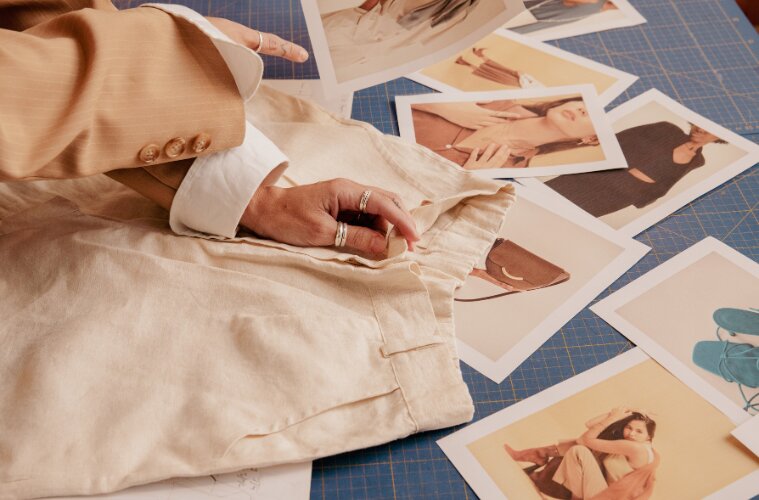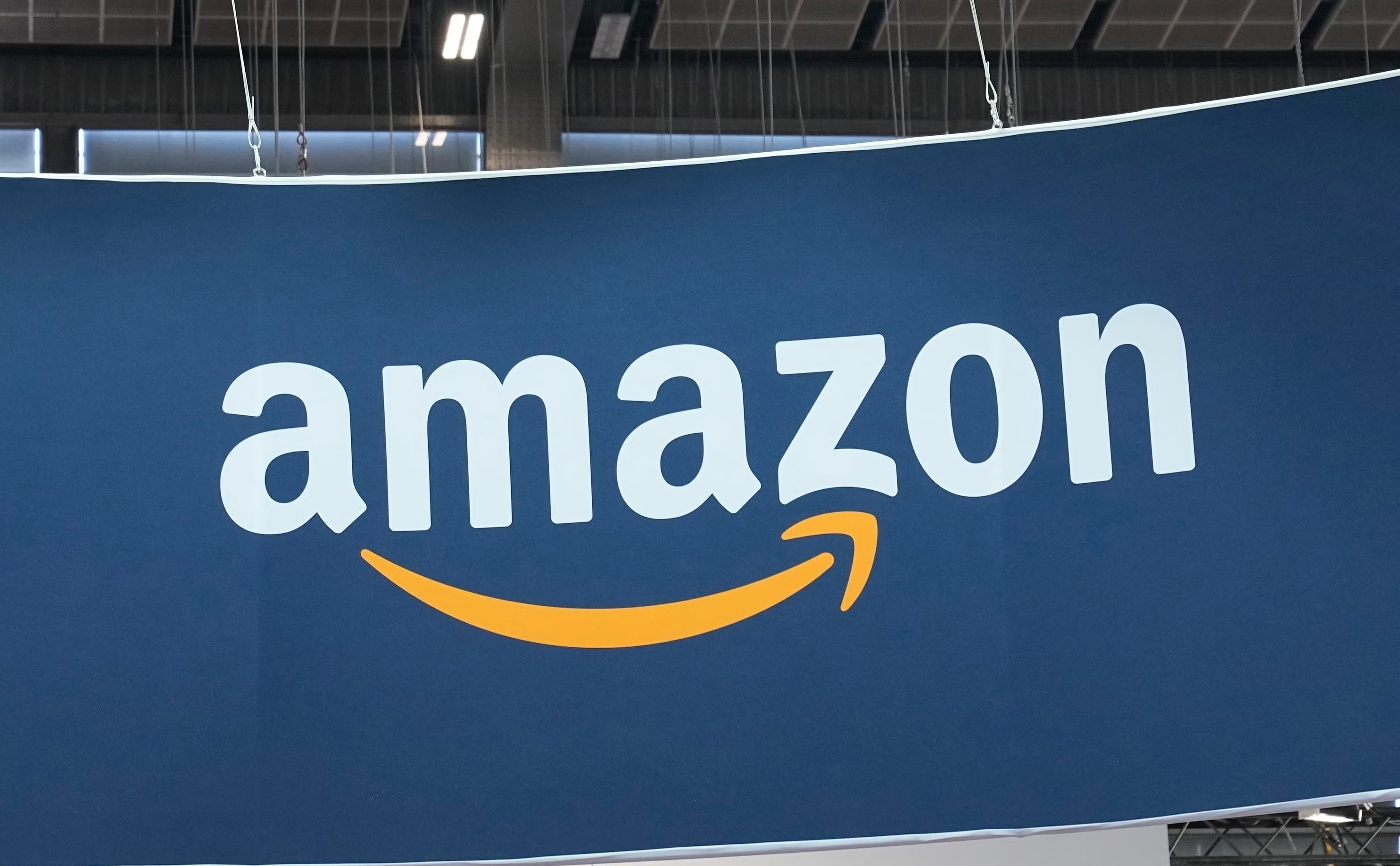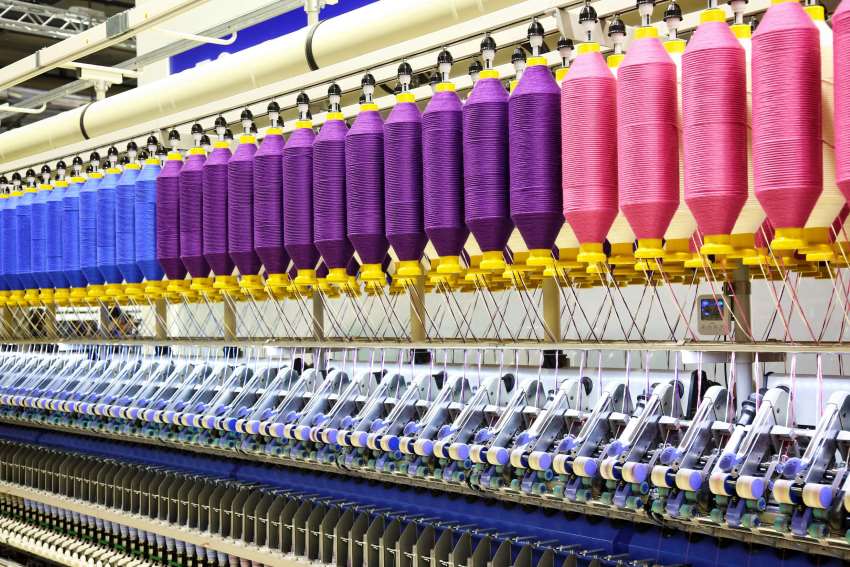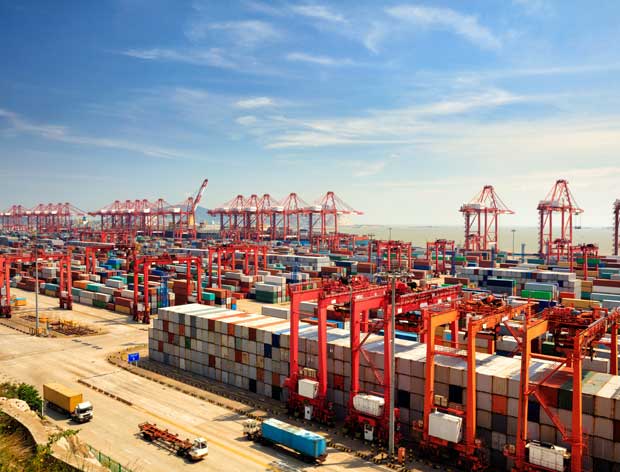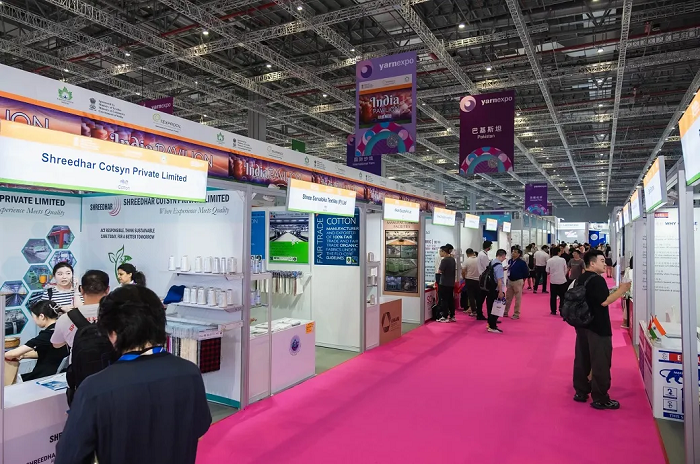FW
Urban Outfitters’ net income increased to $117.5 million in Q2, FY24 with total net income for the first six months of the year amounting to $179.3 million. The company’s net sales for the quarter rose by 6.3 per centto $1.35 billion, driven by a 2 per cent growth in comparable retail segment sales and a 3.1 per cent increase in overall retail segment sales.
In H1, FY24, Urban Outfitters’ net sales grew by 7 per cent to $2.55 billion, supported by a 3.2 per cent rise in comparable retail segment sales and a 4.4 per cent increase in overall retail segment sales.
The growth was fuelled by a rise in all three segments – retail, Nuuly, and wholesale. Four of the company’s five brands delivered record operating profits during the second quarter, notes Richard A. Hayne, CEO.
Performance of the company’s individual brands also remained performance. Net sales of the comparable retail segment increased by 7.1 per centat Free People, by6.7 per cent at Anthropologie, and 9.3 per cent at Urban Outfitters.Net sales of the Nuuly segment rose by 62.6 per cent as the average number of members increased by 55 per cent increase in the average number of active members.
Net sales in the wholesale category also increased by 15.1 per cent. This was largely driven by a 17.5% increase in sales at Free People, although this was slightly offset by a decline in sales at Urban Outfitters.
During the first half of the year, Urban Outfitters expanded its retail footprint by opening 19 new locations, including nine Free People stores, five Urban Outfitters stores, and five Anthropologie stores. Simultaneously, the company closed nine retail locations, comprising four Urban Outfitters stores, three Anthropologie stores, and two Free People stores.
Inspired by India’s rich textile heritage and craftsmanship, the handcrafted apparel and home decor brand Abraham & Thakore, led by David Abraham, RakeshThakore, and Kevin Nigli, has introduced a new home décor range offering wallpapers, soft furnishings, bed linens, ceramics, and wall art, all designed to bring the beauty of local craftsmanship into everyday living.
The collection is inspired by the brand’s desire to create home decor range that highlights the art of Indian craftsmanship, seamlessly integrating it into daily life. Through this collection, the designers aimed to envision the effects of traditional craft on daily life.
Known for their distinct, instantly recognisable style, Abraham &Thakore’s designs are refined yet relaxed, blending contemporary sensibilities with a deep appreciation for cultural history. The brand’s creations are characterised by strong principles of proportion, form, and volume, paired with a clean color palette of blocks and monochromes. This new home living range continues their commitment to simplicity and essentials.
Materiality plays a central role in this collection, guiding the designers’ vision to ensure that each piece authentically reflects the creative intent. The handmade touch is evident throughout the range. Soft, neutral linens set the tone for dining, while ceramics celebrate traditional Indian textile patterns. In collaboration with Obeetee Carpets, a legacy rug design brand, the collection includes sophisticated carpets, covers, and cushions featuring revered crafts such as ikat and kantha, rendered on soft tussar fabric. The walls come alive with evocative creations that highlight multiple heritage crafting techniques, unified by a powerful motif—the dot, which may seem insignificant until it’s not.
With this collection, Abraham &Thakore meticulously adapt intricate traditional practices to a contemporary palette, making the designs suitable for modern living spaces. With this launch, they aim to extend their collection’s reach into both domestic and institutional settings, infusing everyday life with cultural significance and pushing the boundaries of heritage celebration in contemporary design.

In a new move, the government has extended the implementation of the Quality Control Order (QCO) on cotton yet again, now expected to take effect from August 2025. This decision underscores the complexities surrounding QCO implementation and its diverse impact on different segments of the Indian textile industry. This deferment is in response to opposition from the country's ginning sector, which is unable to meet the stringent quality standards set by the Bureau of Indian Standards (BIS).
The QCO, designed to improve the quality of cotton exports, requires ginning units to invest in modern machinery to meet specifications for moisture, trash, and other factors. However, many of these units are small and medium-sized enterprises that struggle to afford these upgrades. While QCOs on polyester, viscose fiber, and other synthetic products are already in place, the repeated deferrals for cotton highlight the unique challenges faced by this natural fiber.
QCO on cotton, a delayed reality
The QCO on cotton, initially planned for 2023, has been repeatedly postponed, reflecting strong opposition from the ginning industry, largely composed of Micro, Small, and Medium Enterprises (MSMEs). The stringent quality standards mandated by the QCO necessitate substantial investments in modernization, are a hurdle for many MSMEs.
Experts say, QCO on cotton is a good move but its implementation needs to be gradual and supportive of MSMEs. They feel, the government should provide financial assistance and technological support to enable ginning units to upgrade their facilities
It may be recalled, the Cotton Association of India (CAI) and other industry groups had petitioned the government to delay the implementation of the QCO, arguing that a gradual rollout would be more feasible. The government has now agreed to this approach, postponing the effective date to August 27, 2025. This extension provides the ginning industry with additional time to modernize their operations and comply with the QCO's requirements. It also raises concerns about the long-term sustainability of the industry and the potential impact on India's cotton exports.
Impact on imports from China
In fact, this delay in implementation has created a contrasting scenario where QCOs on synthetics are already operational, while cotton remains exempt. The QCOs on synthetics have led to a notable decline in imports, particularly from China. This decline is attributed to the stringent quality standards and the requirement for Bureau of Indian Standards (BIS) certification for imported inputs. The following table provides a snapshot of the import trend:
Table: QCQ’s impact on synthetic imports
|
Import item |
Pre-QCO import volume (2022-23) |
Post-QCO import volume (2023-24) |
Change |
|
Polyester Staple Fibre (PSF) |
150,000 tonnes (approx.) |
90,000 tonnes (approx.) |
-40% |
|
Viscose Staple Fibre (VSF) |
80,000 tonnes (approx.) |
50,000 tonnes (approx.) |
-37.50% |
Meanwhile, the absence of a QCO on cotton has resulted in a relatively stable import trend from China. However, the impending implementation in 2025 is likely to disrupt this trend.
Impact on India's export competence
While QCOs aim to improve product quality, the increased cost of raw materials due to limited imports and the complexities of BIS certification have impacted the competitiveness of Indian synthetic textile exporters. As experts opine, the QCOs have pushed the synthetic sector towards better quality, but the cost implications are significant. Result: India is losing ground in price-sensitive markets.
However, the current scenario, with no QCO on cotton, offers a temporary advantage to Indian cotton exporters. However, the looming implementation of QCO raises concerns about potential cost escalations and their impact on export competitiveness.
Impact on prices
The reduction in imports and high compliance costs has led to a rise in synthetic fiber prices.
Table: Rising price of synthetics
|
Fiber type |
Pre-QCO price (Rs/kg) (Jan 2023) |
Current price (Rs/kg) (Aug 2024) |
Change |
|
Polyester Staple Fibre (PSF) |
120 |
150 |
+25% |
|
Viscose Staple Fibre (VSF) |
180 |
220 |
+22.2% |
Source: Textile Commissioner’s Office
Interestingly, cotton prices have remained relatively stable due to the absence of a QCO. However, the anticipation of its implementation has led to some speculative price increases.
The implementation of QCOs highlights a critical juncture for the Indian textile industry. While the intent is to increase product quality and enhance consumer confidence, the diverse impact on cotton and synthetics underscores the need for a nuanced approach. Striking a balance between quality standards and the practical challenges faced by different segments of the industry is imperative.
The government's decision to extend the QCO on cotton provides a window for further deliberation and preparation. The success of QCO implementation hinges on collaborative efforts between the government, industry stakeholders, and technology providers to ensure a smooth transition toward a quality-driven textile ecosystem that fosters both domestic growth and global competitiveness.
Note: Statistics in this article are collated from different sources
Coterie New York, the biannual event spotlighting contemporary and advanced contemporary women's fashion, has announced its lineup of exhibiting brands, trends, and neighborhoods for the upcoming show, scheduled for September 22-24 at the JavitsCenter.
This season, nearly 40 per cent of the featured brands will hail from international designers, including Veja, Missoni, Rucoline, Farm Rio Footwear, and Alemais. These will be showcased alongside prominent American labels such as 7 for All Mankind, AG Jeans, Beyond Yoga, Jade Swim, Rebag, and Favorite Daughter.
Purvi Kanji, VP of Coterie, highlighted that Coterie New York serves as a global hub for both established and emerging designers, with the upcoming event set to feature fresh trends for Spring/Summer 2025 and a strong emphasis on technology, sustainability, and woman-owned brands.
The event will also introduce the International Guest Buyer Program in collaboration with Modem, fostering connections between international buyers and participating brands. This inaugural edition will host 13 prestigious stores from Italy and France, with support from the Camera Buyer Italia (CBI).
With over 750 brands on display, the event will attract top retailers including Anthropologie, Saks Fifth Avenue, Moda Operandi, and Rent the Runway, reinforcing its status as a key player in the global fashion market.
Taking a significant step forward in its retail refresh initiative, Foot Locker has reopened its Manhattan Herald Square store on 34th Street. The sneaker retailer unveiled the newly revamped 13,000-sq-ft store this week. It has been designed to align with Foot Locker’s broader retail enhancement strategy. The updated store features a modern interior design, a communal shoe try-on area, digital shopping enhancements, and a dedicated “sneaker hub” for personalized assistance.
A standout feature of the Herald Square location is the introduction of Foot Locker ‘Home Court,’ a specialised area developed in collaboration with Nike and Jordan Brand. This space showcases Foot Locker’s extensive range of basketball sneakers and celebrates basketball’s pivotal role in sneaker culture. The area also includes immersive experiences like a digital vertical jump challenge and advanced 3D foot-scanning technologies, ensuring customers find the perfect fit.
The Herald Square store also debuts Foot Locker’s new Kids Foot Locker experience, featuring a kid-friendly custom shoe scan station, an activity table, and an expanded selection of basketball merchandise for children.
This reimagined store is part of Foot Locker’s strategic Lace-Up plan, introduced in March 2023, to refresh its entire store fleet. The plan includes closing over 400 stores, including around 125 underperforming Champs locations, while expanding the WSS brand to more than 300 locations.
In addition to the Herald Square store, Foot Locker recently opened another revamped location in Paris ahead of the Summer Olympics and plans to open a similar store in Melbourne, Australia, in October. The company is also partnering with Metro Brands to launch its first Foot Locker store in Delhi, India.
Following the bankruptcy of Esprit's European operations in Germany on May 15, Boulogne-Billancourt-based Esprit de Corp France has also entered into administration. This decision was announced by the Nanterre Commercial Court on July 18,
Esprit Europe and six other German subsidiaries filed for bankruptcy in May this year. The brand’s owner attempted to revitalise Esprit in 2023 by infusing new creative energy from the United States, with the goal to upgrade the brand’s image. However, these efforts fell short.
The brand’s subsidiaries in Switzerland and Belgium, where it operates stores, had already filed for bankruptcy in March and April, respectively.
Esprit cited multiple challenges contributing to its financial difficulties, including high costs driven by inflation, rising interest rates, and increased energy prices, along with the lingering effects of the coronavirus pandemic and the impact of international conflicts. These challenges were further compounded by legacy costs like high rents and poorly sized stores, explains the company.
In 2022, Esprit de Corp France generated a turnover exceeding €40 million and managed to break even, employing 132 people at the time. The company has been granted a six-month observation period, but the outlook remains uncertain as the brand struggles to attract international buyers.
Bluesign has announced that ERCA, a leader in innovative chemical solutions for the textile industry, is now Brazil's first Bluesignsystem partner. This partnership marks a significant milestone in Bluesign's global expansion, further establishing its presence across multiple continents.
ERCA, part of the ERCA Group with operations in Europe, Latin America, and Asia, is known for its commitment to sustainability and responsible innovation. The company's revolutionary Revecol range, which transforms waste materials like exhausted vegetable oil into high-performance textile solutions, is Bluesign approved.
SidneiMaturano, President of ERCA Brazil, expressed pride in this achievement, stating, "Becoming a Bluesignsystem partner reflects our dedication to sustainability and responsible manufacturing. This certification ensures that our products are made using safe chemicals, aligning with the growing consumer demand for environmentally responsible products."
The partnership with Bluesignunderscores ERCA Brazil's commitment to reducing environmental impact, conserving resources, and improving energy efficiency. By adopting Bluesign’s rigorous standards, ERCA Brazil aims to minimize waste and enhance safety throughout its operations.
This collaboration not only highlights ERCA's leadership in Brazil but also strengthens Bluesign's influence in promoting sustainable practices worldwide. As Bluesign continues to expand its network of partners, it remains at the forefront of transforming the textile industry toward a more sustainable future.
For Q1, FY25 ending June 2024, net sales of Sutlej Textiles and Industries’ declined by 6.59 per cent Y-o-Y to Rs 658.07 crore as against Rs 704.48 crore recorded in the corresponding quarter last year.
However, despite this decline, the company managed to narrow its quarterly net loss, by 62.61 per cent Y-o-Y to Rs 11.40 crore in June 2024 from Rs 30.49 crore in June 2023.
Additionally, the company's EBITDA increased by 429.14 per cent Y-o-Y to Rs 25.24 crore in June 2024, up from Rs 4.77 crore in the corresponding quarter of the previous year.
On the Q-o-Q basis, the company’s net sales increased marginally from Rs 656.45 crore reported in Q4, FY24. Its net loss narrowed to Rs 25.55 crore
The Indian government has once again postponed the implementation of the Quality Control Order (QCO) on cotton, extending the deadline by another year. According to a recent notification issued by the Ministry of Textiles, the QCO will now be enforced from Aug 27, 2025 onwards. The order was originally scheduled to be implemented in 2023, but was first delayed until 2024, and has now been extended once more.
This extension was advocated by the Cotton Association of India (CAI) alongwith other industry bodies who argued that an immediate implementation of the QCO would prove impractical for the industry
The government has already enforced the QCO on polyester, viscose fiber, and other products. The delay in implementation of the order on cotton is also a result of the concerns raised by Indian ginning industry over the stringent norms set by the Bureau of Indian Standards (BIS) for moisture, trash content, and other quality specifications.
Predominantly comprising of Micro, Small, and Medium Enterprises (MSMEs), the Indian ginning industry faces significant challenges in meeting these standards. The QCO mandates substantial investment in modern machinery, but many of these units operate with basic, outdated equipment and struggle to upgrade their facilities.

The global apparel industry has experienced a year of mixed fortunes in 2024, with various brands and markets displaying a wide range of performances. While some brands have thrived amidst economic headwinds, others have struggled to maintain their footing. Luxury brands continued to shine, fast-fashion giants face headwinds, and emerging markets offer a glimmer of hope amidst economic uncertainties.
Luxury thrives, fast-fashion falters
High-end brands like LVMH, Kering (parent company of Gucci), and Hermès have consistently posted strong growth. LVMH, for instance, saw a 15 per cent increase in revenue in the first half of 2024, with its fashion and leather goods division leading the charge. This is attributed to robust demand from affluent consumers, particularly in China and the Middle East, who remain largely unaffected by economic fluctuations.
Conversely, fast-fashion retailers such as H&M and Zara have seen their profits squeezed due to a confluence of factors. For example, H&M's profits fell 20 per cent in the second quarter of 2024, as the company struggled to pass on higher costs to consumers. Rising production costs, increased competition from online retailers, and changing consumer preferences toward sustainability have all played a role.
Athletic & athleisure brands resilient
Athletic and athleisure brands like Nike and Lululemon continue to perform well, benefitting from the ongoing trend of health and wellness. In fact, brands like Nike and Adidas have sustained their growth momentum, thanks to the continued popularity of athleisure wear and a focus on product innovation and digital engagement. Nike's digital sales grew 30 per cent in the first quarter of 2024, highlighting the importance of e-commerce in the current retail environment. Nike's success in navigating the challenging market is largely attributed to its focus on digital transformation. By investing heavily in e-commerce and direct-to-consumer sales, the company has been able to mitigate the impact of declining foot traffic in physical stores. "Nike's digital strategy has allowed us to stay connected with consumers and drive growth even in a difficult retail environment," explains John Donahoe, CEO of Nike.
Table: Key brand performance metrics (H1 2024)
|
Brand |
Revenue growth (YoY) |
Net income growth (YoY) |
|
LVMH |
15% |
20% |
|
Kering |
12% |
15% |
|
Hermès |
10% |
12% |
|
Nike |
8% |
10% |
|
Lululemon |
7% |
9% |
|
H&M |
3% |
-5% |
|
Zara (Inditex) |
4% |
-3% |
Market performance, regional disparities
The performance across regions have varied, the Chinese market for example has rebounded strongly in 2024, with pent-up demand following the easing of COVID-19 restrictions. This has benefited luxury brands and those with a strong presence in the country. Despite concerns about a slowing economy, demand for high-end goods remains robust.
The US and European market on the other hand has experienced a slowdown in 2024, with consumer spending impacted by inflation and economic uncertainty. This has particularly affected fast fashion brands reliant on price-sensitive shoppers. Even now, inflation and concerns about a potential recession are weighing on consumer sentiment. At the same time, emerging markets like India and Southeast Asia continue to offer growth opportunities for apparel brands, thanks to a growing middle class and increasing disposable incomes.
In India especially, international fast-fashion brands have seen tremendous success in India, capitalizing on the country's young and fashion-conscious population. H&M, Zara, and Uniqlo have all reported double-digit growth in the Indian market. "India is one of our fastest-growing markets, and we see tremendous potential for further expansion," says an H&M spokesperson.
Table: Key market performance metrics (H1 2024)
|
Region |
Market growth (YoY) |
Key dDrivers |
|
China |
10% |
Luxury demand, growing middle class |
|
India |
8% |
Rising disposable incomes, brand consciousness |
|
US |
4% |
Gradual economic recovery |
|
Europe |
3% |
Gradual economic recovery |
The outlook for the remainder of 2024 remains cautiously optimistic. Luxury brands are expected to continue their strong performance, while fast-fashion retailers will likely focus on cost-cutting measures and digital transformation to navigate the challenging environment. Emerging markets like India and Southeast Asia are expected to offer significant growth opportunities, while the US and European markets are likely to witness a gradual recovery.




